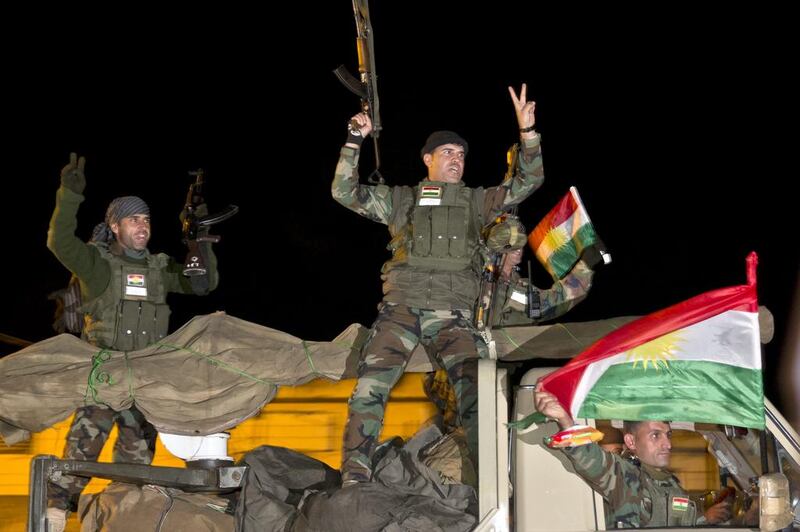Turkey’s once-lauded policy to have “zero problems with its neighbours” has become the butt of rather a lot of jokes recently. Few can resist the ease of quipping that, in some form or another, Turkey and its neighbours now have only problems. But it bears pointing out that the doctrine remains in place and is driving what many find to be a perplexing policy towards Syria, ISIL and the crisis in Kobani.
The start of the Syrian civil war caused a spectacular break-up between the Turkish government and Syrian president Bashar Al Assad. Turkey’s pro-Damascus policy became a wreck and its decade-long effort to lash Syria to its side was presumed abandoned in the ensuing storm of hostilities.
But Turkey’s zero-problem policy hadn’t actually changed. Turkey’s once good relations with Mr Al Assad were just a means to an end: Turkish hegemony over Syria. Today it is a first-order goal.
Before the civil war, Turkey wooed Mr Al Assad into a zero-problems relationship, abolishing visa requirements for Syrians and dispatching trade delegations. Then Turkish prime minister (now president) Recep Tayyip Erdogan and foreign minister (now prime minister) Ahmet Davutoglu courted the regime in Damascus with family visits and by acting out an unlikely storyline: that a newly discovered “brotherhood” bound the democratically-elected, majoritarian, Sunni Turkish government and the minority-Alawite Syrian dictator. Turkey’s physical and cultural proximity and its historical links made the bid for influence in Syria seem “neo-Ottoman” to some. Mr Davutoglu had earlier coined the phrase “strategic depth” to provide a rationale for why Turkey could and should seek influence in Syria and other neighbours.
But the underlying logic that drove Turkey’s quest for hegemony over Syria was no deeper than that required by everyday geopolitics. Syria has oil and gas and represents a large market for Turkish manufacturers and construction companies. Turkey had made clear its policy to become leader, hub and shining light in the new Middle East. This would require friendly borders and an end to the Kurdistan Workers’ Party (PKK) insurgency. All this required more than a fundamentally different relationship with Syria.
Since the Syrian civil war began this logic has changed little. Ankara is still determined to have zero problems with Damascus, only now this requires the fall of Mr Al Assad. Turkey has supported Syrian opposition fighters and has sheltered and protected hundreds of thousands of Syrian refugees. If the fighters ever do triumph, it’s not hard to imagine that Turkish influence over Syria will supplant that of Iran, Russia or Saudi Arabia.
America faces a serious dilemma: can it pursue a policy in which the Syrian prize will go to Turkey, knowing that Iran, Russia and Saudi Arabia do not want this? On the other hand, how can Turkey abide a fundamental strategic goal being undercut and forfeited by its American ally to preserve rival relationships?
The potential messiness of this has been on display during the Kobani crisis. Turkey and the US clashed over how to reinforce defences against ISIL and over Turkey’s attempt to wring concessions from the US by temporising as a massacre seemed imminent.
Having anti-Assad fighters from the Free Syrian Army transit Turkey and deploy to Kobani, followed by Northern Iraqi Kurdish Peshmerga forces will establish a permanent supply line and help Kobani withstand ISIL’s siege. The arrangement allows Turkey to claim it is not arming the PKK affiliates in Kobani. The deal has also assuaged some of the Kurdish rage that boiled over at Turkey’s apparent readiness to let Kobani fall.
But that such a convoluted, politicised, face-saving solution had to be found for what should have been considered a humanitarian crisis and important symbolic fight foreshadows that more dysfunction will probably arise from America’s problem with Turkey’s “zero problems” policy.
Caleb Lauer is a freelance journalist who covers Turkey





